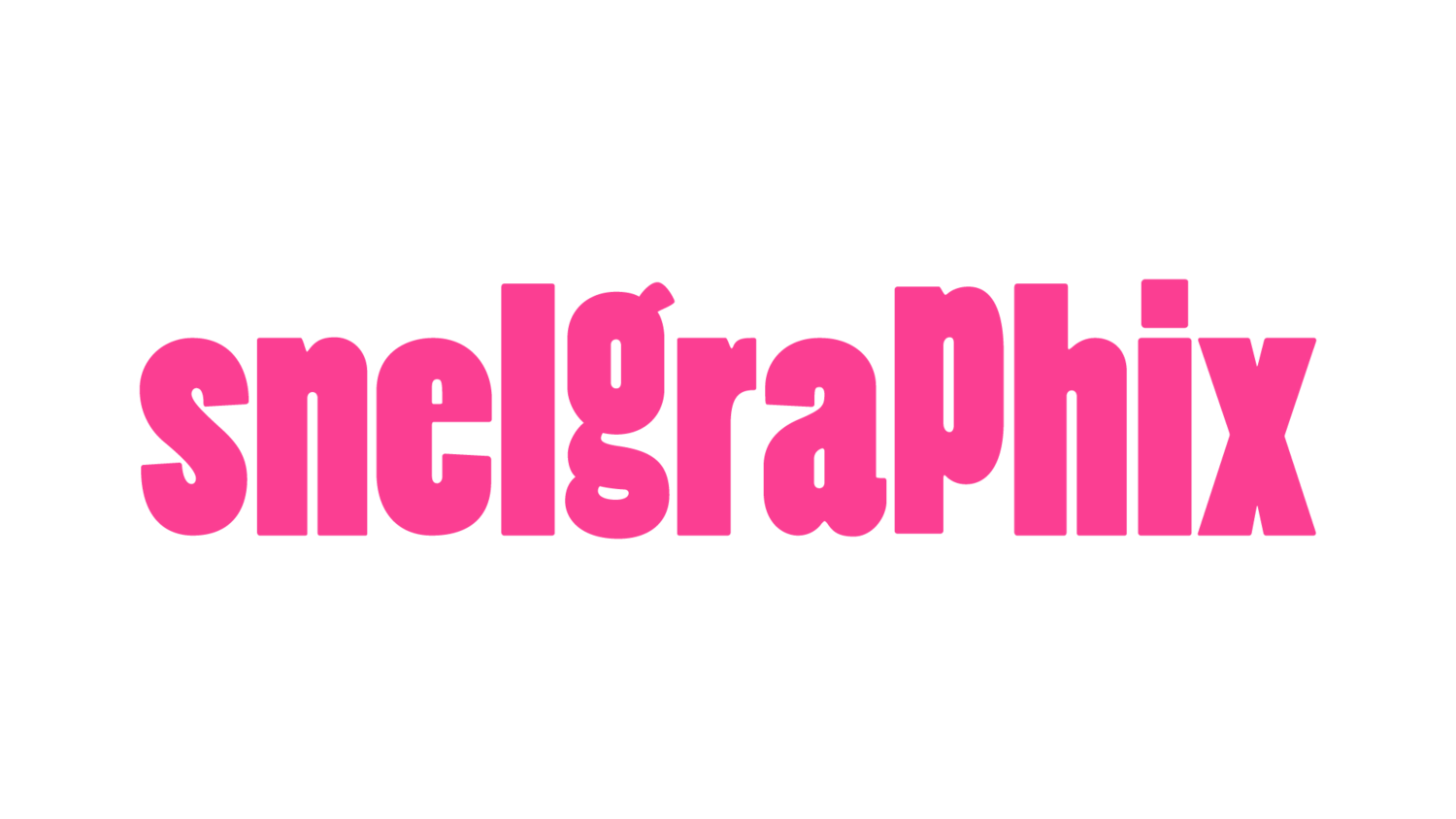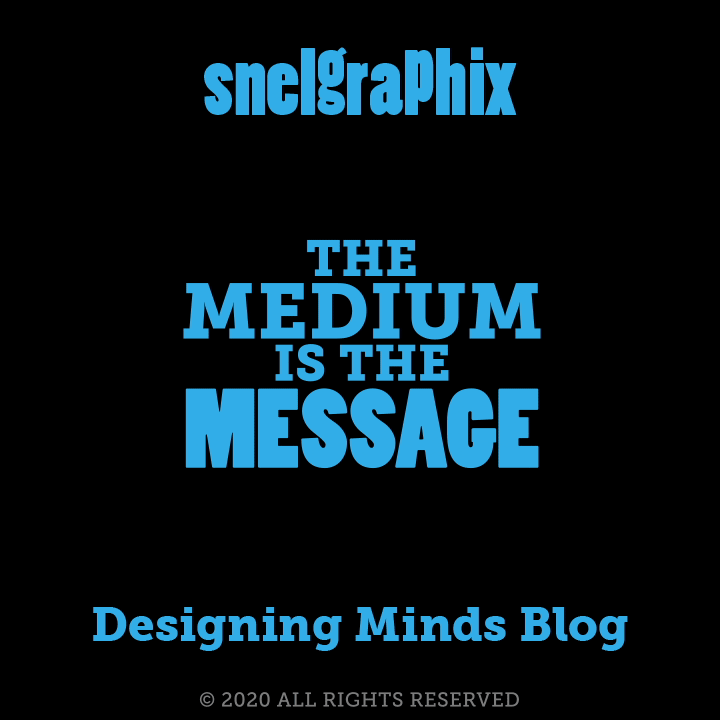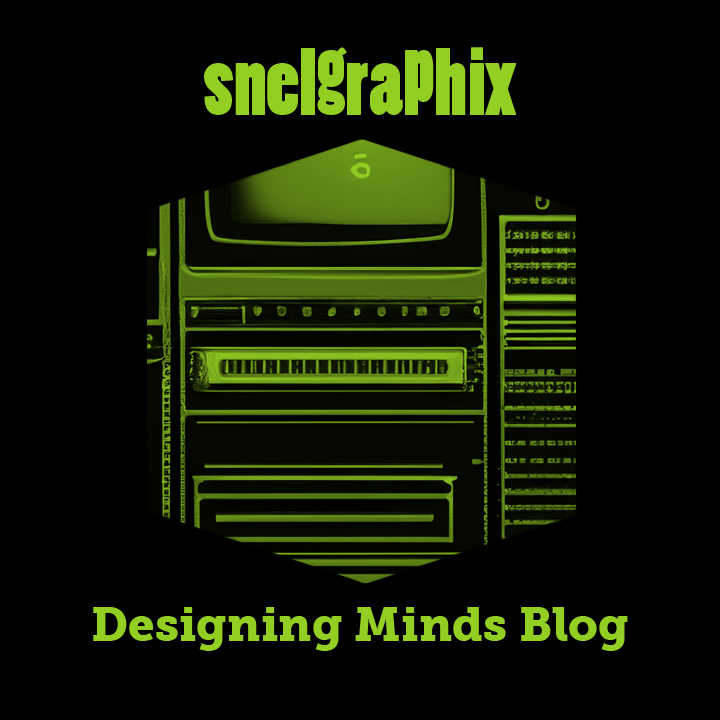Marshall McLuhan Explains Media
“The title "The Medium Is the Massage" is a teaser—a way of getting attention. There's a wonderful sign hanging in a Toronto junkyard which reads, 'Help Beautify Junkyards. Throw Something Lovely Away Today.' This is a very effective way of getting people to notice a lot of things. And so the title is intended to draw attention to the fact that a medium is not something neutral—it does something to people. It takes hold of them. It rubs them off, it massages them and bumps them around, chiropractically, as it were, and the general roughing up that any new society gets from a medium, especially a new medium, is what is intended in that title." • Marshall McLuhan
" "The medium is the message" is a phrase coined by the Canadian philosopher Marshall McLuhan and introduced in McLuhan's book Understanding Media: The Extensions of Man, published in 1964. McLuhan proposes that a medium itself, not the content it carries, should be the focus of study. He said that a medium affects the society in which it plays a role not only by the content delivered over the medium, but also by the characteristics of the medium itself.
"...McLuhan understood "medium" in a broad sense. He identified the light bulb as a clear demonstration of the concept of "the medium is the message". A light bulb does not have content in the way that a newspaper has articles or a television has programs, yet it is a medium that has a social effect; that is, a light bulb enables people to create spaces during nighttime that would otherwise be enveloped by darkness. He describes the light bulb as a medium without any content. McLuhan states that "a light bulb creates an environment by its mere presence." Likewise, the message of a newscast about a heinous crime may be less about the individual news story itself (the content), and more about the change in public attitude towards crime that the newscast engenders by the fact that such crimes are in effect being brought into the home to watch over dinner." • Wikipedia
Marshal McLuhan’s work predates and predicts social media.*
“Herbert Marshall McLuhan[a] CC (1911–1980) was a Canadian philosopher. His work is one of the cornerstones of the study of media theory. Born in Edmonton, Alberta, McLuhan studied at the University of Manitoba and the University of Cambridge. He began his teaching career as a professor of English at several universities in the US and Canada before moving to the University of Toronto in 1946, where he remained for the rest of his life.
McLuhan coined the expression "the medium is the message" and the term global village, and predicted the World Wide Web almost 30 years before it was invented. He was a fixture in media discourse in the late 1960s, though his influence began to wane in the early 1970s. In the years after his death, he continued to be a controversial figure in academic circles. With the arrival of the Internet and the World Wide Web, interest was renewed in his work and perspective." • Wikipedia
Featured Video:
Marshall Mcluhan Full lecture: The medium is the message - 1977 part 1 v 3
Technologies Reinvent People
"The Gutenberg Galaxy: The Making of Typographic Man is a 1962 book by Marshall McLuhan, in which the author analyzes the effects of mass media, especially the printing press, on European culture and human consciousness. It popularized the term global village, which refers to the idea that mass communication allows a village-like mindset to apply to the entire world; and Gutenberg Galaxy, which we may regard today to refer to the accumulated body of recorded works of human art and knowledge, especially books.
McLuhan studies the emergence of what he calls Gutenberg Man, the subject produced by the change of consciousness wrought by the advent of the printed book. Apropos of his axiom, "The medium is the message," McLuhan argues that technologies are not simply inventions which people employ but are the means by which people are re-invented. The invention of movable type was the decisive moment in the change from a culture in which all the senses partook of a common interplay to a tyranny of the visual. He also argued that the development of the printing press led to the creation of nationalism, dualism, domination of rationalism, automatisation of scientific research, uniformation and standardisation of culture and alienation of individuals.
Movable type, with its ability to reproduce texts accurately and swiftly, extended the drive toward homogeneity and repeatability already in evidence in the emergence of perspectival art and the exigencies of the single "point of view". He writes:
the world of visual perspective is one of unified and homogeneous space. Such a world is alien to the resonating diversity of spoken words. So language was the last art to accept the visual logic of Gutenberg technology, and the first to rebound in the electric age." • Wikipedia
Electronic Interdependence
“In the early 1960s, McLuhan wrote that the visual, individualistic print culture would soon be brought to an end by what he called "electronic interdependence": when electronic media would replace visual culture with aural/oral culture. In this new age, humankind will move from individualism and fragmentation to a collective identity, with a "tribal base." McLuhan's coinage for this new social organization is the global village.” • Wikipedia


























